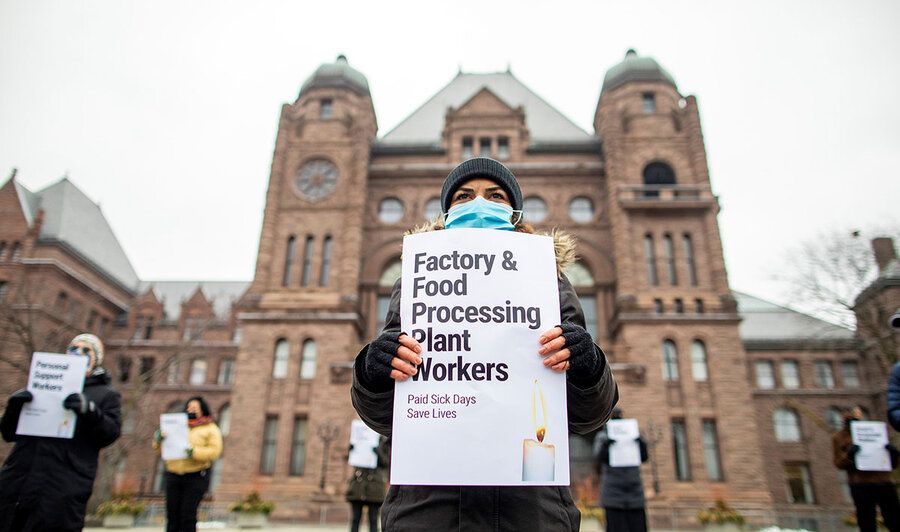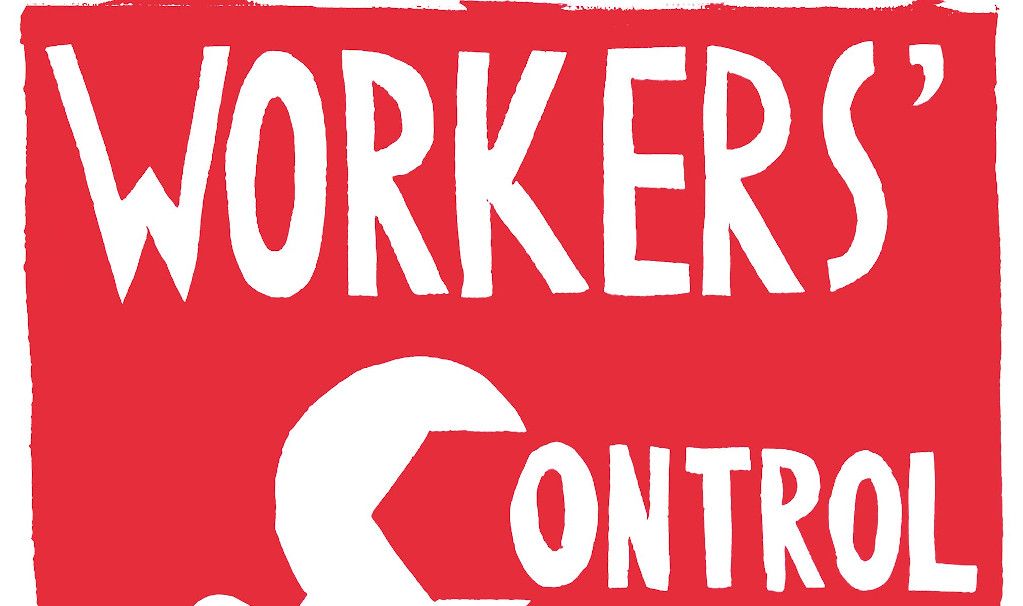Doug Ford began his press conference Friday, April 16 with “we’re losing the battle.” Knowing Ford, many expected him to continue with “but we’re winning the war.” Mercifully, he spared us that. It would have been more than a stretch to make that claim given the latest grim figures from Ontario for the virus. The province set a record that Friday with 4,812 new cases. Hospitalizations have jumped 67 percent and intensive care unit (ICU) occupancy is up 51 percent in the last two weeks. The author’s family doctor reported that he had seen 50 new cases of COVID in the last week. Health care staff in the hospitals are overwhelmed with the influx of new cases, many are facing burn out while a worse-case scenario has all of Ontario’s ICU beds being filled by COVID patients by the end of May. There are adult patients in paediatric ICUs. With an estimated gap in staffing of around 4,145 nurses over the next four months, the government has requested help from other provinces in the form of 500 nurses and 120 other professionals.
The battle is indeed being lost – COVID-19 is a formidable foe – and Ontario is not the only jurisdiction that isn’t winning. However, clear public health policies can win as some provinces in Canada and a few countries around the world have shown. The mistakes by the Ford government have caused this disaster. In this third wave of the virus, characterised by the variants, these mistakes are costing human lives.
How did we get here?
Over two months ago, at a government press conference, a media reporter asked Dr. A Brown, co-chair of the COVID science advisory table, “Am I missing something here or is this presentation actually predicting a disaster?” Brown replied, “No, I don’t think you’re missing anything.” Brown went on to say that if the variant behaved in the same way as the original virus, we would see an increase in new cases, starting later that month, followed by more hospitalizations and ICU admissions. “We face the very real risk of a third wave and, potentially, a third lockdown,” Brown said.
But Doug Ford had already announced he was easing restrictions. Schools would remain open. Retail stores would be allowed to reopen everywhere on February 16 – except for hot spots Toronto, Peel and York – where stores would reopen the following week. Ford’s claim was “Today we’re seeing some sunlight break through the cloud. My friends, the measures are working. Staying home is saving lives.”
The Ontario chief medical officer of health, Dr. David Williams, whose direction Ford says he relies on, said, “There has to be a ‘fine balance’ because a lot of people are ‘suffering economically.’ We’re not opening up. We’re allowing some things to be available.” Talk about a complete underestimate of the seriousness of the situation.
So, what did Ford announce on April 16?
- Stay at-home order extended until May 20.
- Outdoor gatherings prohibited except for members of the same household.
- Police will have the authority to ask anyone outside their residence to indicate their purpose for leaving home and provide their address. That includes stopping vehicles and potentially issuing tickets of approximately $750.*
- Non-essential construction will be shut down and outdoor amenities like golf and playgrounds* will be restricted.
- Retail capacity will be limited to 25 percent in all settings where in-store shopping is still permitted.
- Religious gatherings, weddings and funerals will be limited to 10 people.
- Checkpoints at provincial borders with Quebec and Manitoba with exceptions for essential travel.
Random police stops reversed
*Within 24 hours, Ford, facing an outcry from community groups, police chiefs and civil liberty organizations, had to go back on two of these measures. First, on random police stops – the people most likely to be out and about on the streets and waiting to be stopped are the working class and racialized – some of whom would be travelling to and from work or who would be looking for opportunities to take a break from their overcrowded living conditions. It was generally perceived to be a non-workable and racist policy. It drew comparisons to the old Toronto police practice of “carding,” an intelligence gathering policy involving the stopping, questioning, and documenting of individuals when no particular offence is being investigated. This practice ended up disproportionately targeting young black men and was ordered to be stopped by the Ontario Human Rights Commission in 2014. Ford’s climb down over 24 hours points again to the incompetence of his administration – one would have thought that if you were going to give the police arbitrary powers, you would run it by the top cops first.
Playground closing reversed
*The second reversal was around playgrounds. Infectious diseases specialist Dr. Sumon Chakrabarti said shutting down outdoor recreational spaces is not the right move to take. “Right now unfortunately, apart from vaccination and, you know, some stuff in workplaces, there’s not a lot of levers left to pull. And you know what you have to do is not make things worse and by driving people indoors, which is what these new rules will do, it’s actually going to make the problem worse.”
Most of the measures that still stand make sense but still the focus is on controlling individual behaviour and not on attempts to target what have been shown to be the main spreader of the virus – big workplaces, including warehousing facilities.
Typical of the reaction from the medical community to Ford’s announcement came from Dr. David Fisman, a member of the COVID-19 science advisory table: “You know, the difficulty we’re in in Ontario is there are things that don’t seem to be on the table. Construction sites aren’t on the table. Amazon is not on the table. There are all these places that, you know, for whatever reason, you can’t touch that, so you have to kind of make a lot of noise around closing crazy things like parks, playgrounds. That’s not going to help anything. It makes it sound like you’re doing something.”
Paid Sick Days –Another Reversal
This took a couple of days more to come through. This is demand has been pushed for months by most of the health care community, it has the support of all three opposition parties and, according to a recent poll, 70 percent of the public. For months, Ford had opposed this demand. With no sense of self-conscious irony he declared, “We’ve spared no expense for workers.” His refusal came from a pure pro-business ideological stubbornness that would require making a 180 degree about turn, were he to introduce paid sick days now, since that was part of the legislation he inherited from the previous Liberal government and which his government rapidly eliminated. For Ford, saving face is more important than saving lives. His argument was that paid sick days would duplicate existing Federal programs but it is not true as this article by Rodriguez explains. The Ford government is now trying to have us believe that it was hoping the federal program – which retroactively pays employees if they miss 50 percent of their work week – would be tweaked in Monday’s federal budget before deciding whether to take provincial action.
Finally, after many needless deaths, on April 21, the Ford government has promised some announcement “in the next couple of days.” Ford’s change of heart as a conversion must rank up there with that of St. Paul on the road to Damascus.
Vaccine Inequities
Compounding the crisis has been the problem of supply of vaccines. One example of this was last week when two Toronto vaccination sites, at the last minute, cancelled 10,000 appointments. The explanation was lack of supply. That’s just one element of the problem. There has been general confusion and inequities around the roll out of the vaccines. First, communication about the whereabouts of mobile and pop-up clinics has been spotty. Second, some Toronto neighbourhoods still don’t have a single pharmacy offering vaccines, while other communities with lower infection rates have a disproportionately high number of pharmacies offering shots. That’s another way of saying that it’s a tale of two cities – the wealthy and privileged doing well in one part while the poor and vulnerable struggle in the other part.
Rotten System
Being forced into three separate reversals over five days shows that, even in a pandemic when people are prepared to allow their political leaders some slack in dealing with an unprecedented situation, governments are fragile, and opposition can be built. “Ontario decided to criminalize public space and socialize death and illness in factories and warehouses and construction sites, because the donors must be rewarded. You can’t have paid sick leave, but you can have police,” said Bruce Arthur, in a Toronto Star opinion piece.
The pandemic has revealed the fault lines in this rotten system – the incompetence of governments and their pandering to big business, the profit gouging of Big Pharma, and the inequalities between rich and poor are growing wider. We need to build on the opposition that has developed under Ford. We need to dump capitalism now and rally to the call for a socialist society.




